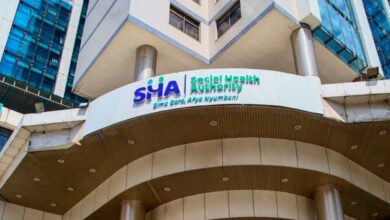
Kenyan are contributing approximately Ksh.5.5 billion monthly towards the housing levy, as disclosed by Housing Principal Secretary Charles Hinga.
This figure represents an average, suggesting that the actual amount may be higher, particularly since the levy predominantly targets salaried individuals.
Hinga informed the National Assembly’s Committee on Housing, Urban Planning, and Public Works that by April of this year, the State Department for Housing had amassed Ksh.34.72 billion from Kenyans.
However, only Ksh.6.93 billion has been utilized for the development of affordable housing units since the enactment of the Affordable Housing Fund Act on March 19, 2024.
“On average, we are collecting Ksh.5.5 billion every month from the affordable housing levy,” said PS Hinga when he appeared before the National Assembly’s Committee on Housing, Urban Planning and Public Works.
Housing Levy Budget in 2024/25 Fiscal Year
The Affordable Housing Board is anticipated to receive Ksh.63.22 billion from the housing levy in the upcoming fiscal year of 2024/25.
Out of this allocation, Ksh.32.5 billion will be dedicated to constructing affordable housing units, Ksh.15 billion for social housing, Ksh.1 billion for police housing, and Ksh.14.66 billion for infrastructure development.
Also Read: Court of Appeal Directs Govt to Halt Housing Levy Deductions
Under the Housing Levy Act, Kenyans are expected to pay between Ksh.840,000 and Ksh.5.76 billion for low-cost housing units.
The government aims to construct 250,000 housing units annually, comprising bed-sitters (studios), two and three-bedroom apartments for affordable housing, and one, two, and three-bedroom apartments for social housing, targeting residents of slum areas.
Housing Levy Funds for Govt Securities
Hinga disclosed that the government is considering investing the collected affordable housing funds in debt securities such as Treasury Bills (T-Bills) and Bonds (T-Bonds).
Of the total collection, Ksh.20 billion has been allocated to the Affordable Housing Board for investment in T-Bills and T-Bonds.
“The first ksh.20 billionis headed for investments in Treasury Bills and Bonds. The Board needs to open and account with the Central bank of Kenya (CBK) to receive the money,” said Hinga.
This Bonds are medium to long term government securities and this type of ivestment indicate the government is collecting housing levy at a faster pace than it can deploy in the construction of houses.






Superb blog! Do you have any recommendations for aspiring writers?
I’m planning to start mmy own blog soon but I’m a little lost on everything.
Would you suggest starting with a free platform like WordPress or ggo for a paid option? There
are so many options out there that I’m totally overwhedlmed ..
Any ideas? Cheers! https://hallofgodsinglassi.wordpress.com/